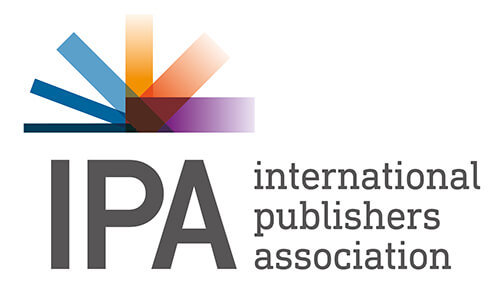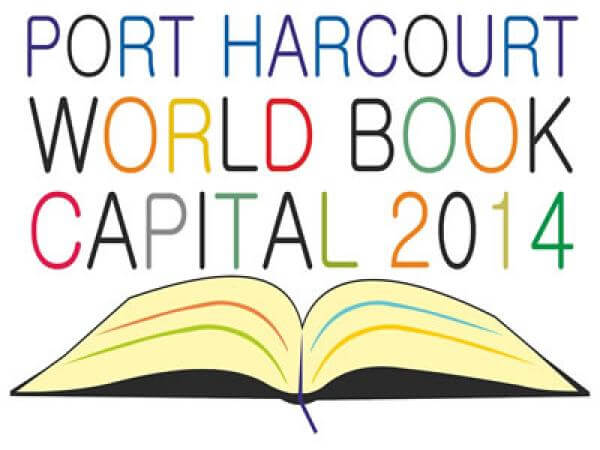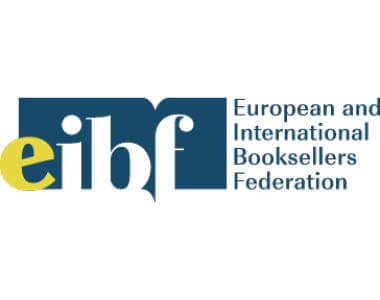On the interoperability of e-books formats
The study was conducted by Professor Christoph Bläsi and Professor Franz Rothlauf of Johannes Gutenberg University, who said: “There is no technical or functional reason not to use and establish EPUB 3 as an/the interoperable (open) ebook format standard.
One short term obstacle is the non-availability of reader applications able to display all EPUB 3 features. However, this problem should be fixed soon by the IDPF Readium initiative which is developing an open source reference system and rendering engine for EPUB 3.”
Vice-President of the European Commission, Neelie Kroes, in charge of the Digital Agenda, praised the study: “My wish is that booksellers in Europe can take initiatives and benefit from the growth in the ebook markets. This is why I welcome this study by the European Booksellers Federation. Interoperability is a major requirement
to build a truly digital society. This applies to ebooks too. This study provides interesting insights on ways to reach true interoperability in the ebook market, through both interoperable ebook formats and interoperable DRM schemes. Now is the time for open standards regarding ebooks, just like has happened in other areas of the digital economy.”
John Mc Namee, President of the European Branch, EBF, said: “The lack of interoperability between formats
and platforms has been identified as one of the major obstacles hindering the Digital Agenda and is a real problem for booksellers in their daily contacts with their customers. On behalf of my colleagues from all Booksellers Associations in membership with EBF, I am very pleased that this study provides clear scientific evidence that interoperability is achievable. It also shows that there are alternatives to DRM’s and that content portability is feasible. Booksellers are keen to promote business models which make digital content easily accessible to the customers they are in touch with on a daily basis in their terrestrial or e-bookshops, the European readers.
Equally, booksellers are keen to sell e-books across borders and make as many customers as possible happy. They strongly support an open market, without territorial restrictions, in the full respect of copyright”.
The full study can be found in attachment.
EBook Interoperability: Study, commissioned by EIBF, backs EC Vice-President KROES on Digital Agenda

A study into interoperability of e-book formats was unveiled at the EIBF Annual Conference, Brussels, 16 May.
In the preface to the study, European Commission Vice-President, Neelie Kroes, wrote: “Now is the time for open standards regarding ebooks“.
The study was conducted by Professor Christoph Bläsi and Professor Franz Rothlauf of Johannes Gutenberg University, who said: “There is no technical or functional reason not to use and establish EPUB 3 as an/the interoperable (open) ebook format standard.
One short term obstacle is the non-availability of reader applications able to display all EPUB 3 features. However, this problem should be fixed soon by the IDPF Readium initiative which is developing an open source reference system and rendering engine for EPUB 3.”
They added: “Given the will to do so on the side of Amazon and Apple, the DRM barrier between the ecosystems could be partly overcome by simple changes to the respective store and reader applications, and partly only by more demanding agreements between different players on interoperable DRM solutions. The latter is only necessary if copyright holders continue insisting on having their intellectual property protected by highly restrictive measures.”
Vice-President of the European Commission, Neelie Kroes, in charge of the Digital Agenda, praised the study:“My wish is that booksellers in Europe can take initiatives and benefit from the growth in the ebook markets. This is why I welcome this study by the European Booksellers Federation. Interoperability is a major requirement to build a truly digital society. This applies to ebooks too. This study provides interesting insights on ways to reach true interoperability in the ebook market, through both interoperable ebook formats and interoperable DRM schemes. Now is the time for open standards regarding ebooks, just like has happened in other areas of the digital economy.”
John Mc Namee, President of the European Branch, EBF, said: “The lack of interoperability between formats and platforms has been identified as one of the major obstacles hindering the Digital Agenda and is a real problem for booksellers in their daily contacts with their customers. On behalf of my colleagues from all Booksellers Associations in membership with EBF, I am very pleased that this study provides clear scientific evidence that interoperability is achievable. It also shows that there are alternatives to DRM’s and that content portability is feasible. Booksellers are keen to promote business models which make digital content easily accessible to the customers they are in touch with on a daily basis in their terrestrial or e-bookshops, the European readers.
Equally, booksellers are keen to sell e-books across borders and make as many customers as possible happy. They strongly support an open market, without territorial restrictions, in the full respect of copyright”.
The European & International Booksellers Federation’s Annual Conference took place in Brussels today, on May 16th. It featured around 45 participants, representing all the major Booksellers Associations in the European Union and worldwide .
Booksellers have been fully supportive of the political objectives of the Digital Agenda, as promoted by the European Commission, since its launch.
Booksellers across Europe are fully engaged in developing and implementing the new business models that are opening up as a result of the digitization of books and reading. They are keen to meet the expectations of digital readers, as long as copyright, fair business models and independence of choice are respected.
They are aware that it is crucial to preserve a healthy book chain in Europe, as writers, publishers and booksellers are essential in promoting cultural diversity and high quality content. It is therefore of paramount importance to promote fair and sustainable business models and an even playing field for all book retailers in the book industry, and ultimately for the benefit of all European readers.
Digital Publishing Is Now Truly Global: IPA Endorses EPUB 3 as Global Publishing Standard

The International Publishers Association (IPA) recognizes EPUB 3 as a preferred standard format for representing HTML and other web content for distribution as single-file publications. IPA recommends that publishers and their national publishers’ associations familiarise themselves with EPUB 3 and explore whether and how they can make best use of its functionalities.
Meeting in New York earlier this month, the Board of IPA endorsed the EPUB standard, and in particular its current version EPUB 3, for the following reasons:
- IPA believes that a competitive and diverse digital environment requires the wide-spread adoption and use of free and open standards for digital content by publishers, technology providers, and distribution platforms.
- Open standards that are collaboratively developed and vendor-independent pro-vide an inclusive context which gives publishers great freedom in the way they develop their digital businesses.
- Standards must be developed through transparent, inclusive and business model-neutral standards bodies. The international publishing industry is adequately rep-resented, together with other stakeholders, in the governance of the International Digital Publishing Forum (IDPF), the global trade and standards organisation dedicated to the development and promotion of electronic publishing and content consumption.
- EPUB 3 is semantically enhanced, reliably navigable, and enables publishers to progress from producing static documents to creating interactive experiences.
- With EPUB 3, content can be encoded into a distributable publication file that is interoperable across devices and can adapt smoothly to different sized displays.
- EPUB 3 is a truly international e-book standard. It fulfills the requirements of publishers around the world, including by supporting global language requirements, such as vertical layout, alternative writing, and page progression directions, as well as other typographic capabilities needed to express the wide range of world languages.
- Furthermore, EPUB 3 can be made fully accessible to print disabled readers.
Mr Bammel, IPA’s Secretary General, said: “Digital publishing is now truly global. IPA strongly urges all publishing industry stakeholders to adopt EPUB 3 so that the publishing industry can achieve an interoperable and fully accessible global standard for e-books and other digital publications”.
About IPA:
The International Publishers Association (IPA) is an international industry federation representing all aspects of book and journal publishing. Established in 1896, IPA’s mission is to promote and protect publishing and to raise awareness for publishing as a force for economic, cultural and political development. Around the world IPA actively fights against censorship and promotes copyright, literacy and freedom to publish. IPA is an industry association with a human rights mandate.
ENDORSEMENT OF EPUB 3

The Book Industry Study Group (US) officially endorsed EPUB3 as the official standard for eBooks
World Book Capital 2014

The Selection Committee of the World Book Capital 2014, made up of the representatives of the International publishers Association (IPA), the International Booksellers Federation (IBF), the International Federation of Library associations and Institutions (IFLA) and UNESCO, met on 5 July 2012 under the chair of Alexis Krikorian (IPA), in order to examine the applications for the nomination of the World Book Capital 2014, in accordance with Resolution 31 C/29, adopted by the UNESCO General Conference on 2 November 2001.
The city of Port Harcourt (Nigeria) was nominated as World Book Capital 2014 on account of the quality of tis programme, in particular its focus on youth, and the impact it will have on improving Nigeria’s culture of books, reading, writing and publishin to improve literacy rates.
Report of the mission on how to support the French bookselling sector

Report to the mission on how to support the French bookselling sector, at the initiative of former Minister for Culture, Frédéric Mitterand (in French).
Soutenir la librairie pour consolider l’ensemble de la chaîne du livre : une exigence et une responsabilité partagée.
Ari Doeser received the Donner Prize 2012

On Monday 21st of May, Ari Doeser outgoing Director of the Royal Dutch Booksellers Association (Koninklijke Boekverkopersbond), outgoing Member of the board of EBF and IBF, received the prestigious Donner Prize 2012.
This Prize is awarded every five years to a personality who proved outstanding dedication to the book sector in the Netherlands.
Ari Doeser was selected in reason of his long and successful career as Director and Member of the Board of the Dutch BA, the Dutch book token association and the Service and consultancy office for bookshops, and for his commitment to the book sector as a whole.
The Donner Prize was created by the Dutch Booksellers Association to celebrate its 50th anniversary
and in memory of Jan Hendrik Donner who was the first president of the BA.
EBF supports the ACTA treaty

Over the past two weeks, we have seen coordinated attacks on democratic institutions such as the European
Parliament and national governments. As companies, associations and citizens, we stand against such attempts to silence democratic institutions. Instead, we call for a calm and reasoned assessment of facts instead of misinformation. This considerate reaction is more important than ever at times when many
outside of Europe doubt the ability of the European Union institutions and its Member State governments to act together.
The signatories of this letter represent hundreds of European companies and millions of workers in dozens of sectors crucial to the European economy, which are eager to get Europe out of the current economic crisis by promoting innovation and growth-enhancing measures. We are all dependent on intellectual property and come from fields as varied as publishing, agriculture, manufacturing. ACTA is good for Europe. Without changing EU law, it establishes common procedures for dealing with IPR infringements across countries accounting for 50% of world’s trade. This procedural framework set up by ACTA will have a positive impact on protecting Europe’s industries, jobs and people. ACTA will have no negative consequences as it does not depart from EU law – as confirmed by three opinions of the European Parliament’s Legal Service as well as the European Commission. It is important to show that Europe is united and has trust in its institutions and government processes. That is why ACTA is supported by all the organisations and companies below, as well as 22 European Member States who joined the EU in the first step towards ratification.


